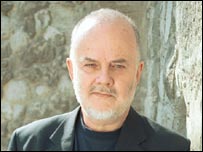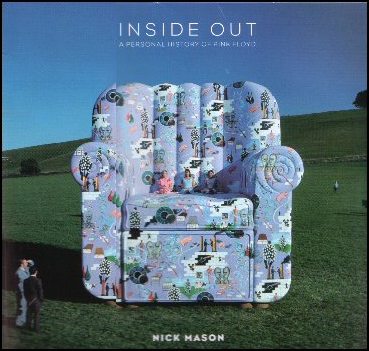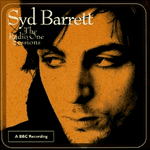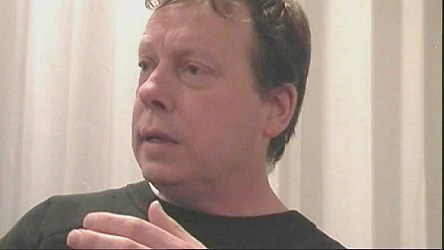|
10/26/2004:
By JILL LAWLESS, Associated Press Writer LONDON - John Peel, a longtime British Broadcasting Corp. disc jockey whose enthusiasm for the offbeat, the eclectic and the obscure launched the careers of dozens of bands, has died, the BBC said Tuesday. He was 65. The broadcaster said Peel suffered a heart attack Monday while vacationing in Peru with his wife, Sheila. Dr. Alcides Vargas, who worked to revive Peel, told Peru's Radioprogramas radio that the DJ suffered a heart attack in a hotel in Cuzco, 350 miles southeast of the Peruvian capital, Lima. He was pronounced dead on the way to a clinic. Peel's program on Radio 1, the BBC's flagship pop music station, exerted a huge influence for more than 30 years. He was often the first to play demo tapes by little-known bands, and his enthusiasm propelled some to fame. Prime Minister Tony Blair's official spokesman said Blair who once played guitar in a college band called Ugly Rumours was "genuinely saddened" by the news. He said Peel "was a unique voice in British broadcasting who used that voice to unearth new talent and different subjects and bring them to the awareness and make them accessible to a much wider audience." Peel promoted reggae, hip-hop and punk on the sometimes conservative BBC, and championed acts ranging from Jimi Hendrix and David Bowie to The Smiths, The Fall, Pulp and Northern Irish punks The Undertones, whose "Teenage Kicks" Peel rated his favorite song. His live studio sessions were coveted by bands, and many were released on record as the "Peel Sessions." "Over the years we've had almost everybody, except The Beatles and the Rolling Stones, of the kind of big bands of the past," Peel once told an interviewer. "More recently Oasis I never really thought Oasis were much good, to be honest, so they didn't do one." Bands Peel did like, such as post-punk outfit Joy Division and its successor, New Order, often remained deeply grateful "If it wasn't for John Peel, there would be no Joy Division and no New Order," band member Bernard Sumner said. "He was one of the few people to give bands that played alternative music a chance to get heard, and he continued to be a champion of cutting-edge music throughout his life." Blur frontman Damon Albarn said, "John Peel's patronage was for me, like countless other musicians, one of the most significant things that happened to us in our careers." Pulp's Jarvis Cocker said Peel "was one of those few people about whom you could truly say that the world would have been a much different place without him. For many years he almost single-handedly championed new and challenging music in the U.K." Elvis Costello called Peel "a great man, a fabulous curmudgeon he was as rare as the music that he loved." Guy Garvey, frontman of Manchester band Elbow, said: "We owe him everything." "He was the first person to ever play us on the radio, which I am sure lots of people can say." Peel was born John Ravenscroft near Liverpool in 1939. As a teenager, he later said, his life was changed by hearing Elvis Presley singing "Heartbreak Hotel." He later joined the British army and worked in a cotton mill. In the early 1960s he moved to Dallas, where his roots in Liverpool newly famous as home of The Beatles enabled him to get a job on WRR radio, hosting a program called "Kat's Karavan." He then worked at stations in Oklahoma City and San Bernardino, Calif. Returning to Britain, he worked on the pirate station Radio London, broadcasting from a boat off the English coast, where he adopted the name John Peel. He joined the BBC in 1967, broadcasting on Radio 1 and internationally on the World Service. Since 1998, he also presented "Home Truths," a whimsical show about the travails of family life, on the BBC's talk-based Radio 4. He is survived by his wife and four children. Funeral details were not immediately announced. 9 /28/2004:
There
was a auction for a 1963 Roger Barrett painting at
Christie's on the 29th.
Info:
Pencil and oil on board, initialled and
dated RKB 1963 The vendor knew Syd Barrett in the early 1960s when he had been her babysitter in Cambridge and she purchased this painting at the Cambridge Art School end of year show. The painting still has the original frame that Barrett made. 6/28/2004:
INSIDE OUT A PERSONAL HISTORY OF PINK FLOYD Nick Mason Due to be released on 9/9/04 in Hardback Pink Floyd one of the most controversial bands of all time Stand-off between the members has prevented anything being written - until now The first and only 'authorized' inside story of the band One of the most fascinating rock bands ever, Pink Floyd was formed in 1965. After a year in the London 'underground' when they experimented with revolutionary techniques like lights which matched their music, they released their first single in 1966. Their breakthrough album, THE DARK SIDE OF THE MOON, was released in 1973 and stayed in the charts until 1982, the longest a record has ever been continuously in the charts, becoming one of the best- selling all-time albums. In 1975 they released WISH YOU WERE HERE which reached iconic status. THE WALL in 1979 went to number 1 in almost every country in the world. The movie version of THE WALL staring Bob Geldof was released in 1982 becoming a cult favorite. In the 1980s a rift developed between the band members which culminated in law suits. Only recently have there been reconciliations which have allowed founder member Nick Mason to write the definitive history of the band.Contents: Introduction 1. Poly Days 2. Going Underground 3. Freak Out Schmeak Out, 4. Sum of Parts 5. Tempo Changes 6. Dark Side, 7. HardLabour, 8. Balloon 9. The Wall 10. Comms Failure 11. Resurrection 12. Wiser After the Event, Chronology Bibliography Index |
|
5/19/2004:
Syd Barrett - Radio One Sessions -
[Strange Fruit; 2004] To keep this "fair and balanced," let's look at
two different bios of Roger "Syd" Barrett:
Wherever you stand on Barrett, his legacy regularly buries everything that was great about his tiny catalog: two proper (but shaky) solo records, some outtakes and bootlegs, and these two sessions for the BBC. The supply-and-demand also explains why the 20 minutes of music on The Radio One Sessions will run you $20, and why the fans who already own the first half will still buy this for the three new tracks, taken from a session that the BBC lost but that someone had taped off the radio, probably on equipment that the Germans dropped on them in the war. The album starts with the five tracks from Barrett's 1970 Peel Session, which were already available on a separate release. Joined by David Gilmour on guitar and Humble Pie's Jerry Shirley on bongos, Barrett performs a set of his best songs. The hilarious "Effervescing Elephant" sounds more spontaneous, and "Gigolo Aunt" and "Baby Lemonade" are easy-going complements to the studio versions. But you also get "Two of a Kind", a song that's so clumsy and devoid of imagery that some critics doubt Barrett even wrote it; some blame Richard Wright, but he won't confirm it. The second session, from 1971, includes the Barrett tracks "Baby Lemonade", "Dominoes" and "Love Song". The sound quality of these, unfortunately, is garbled and sub-bootleg, and what's worse, the distant, distorted recording plays up the most patronizing stereotypes about Barrett: that you can hear him slip away from us, and that the dark recording quality suggests the end of his career. If you're one of the people who gets off on that, you'll wet yourself over the fade-out. But even if this is a lousy value, The Radio One Sessions has one major strength: Barrett. Listening to him strum out these songs with these guys, you can hear everything that's charming about his voice. It's a comfortable session, and Gilmour also shows how much warmer his early, Zabriskie Point-era guitar sounded than his later, studio-perfected leads. Not unlike Pink Floyd's contemporaneous Atom Heart Mother, this is engrossingly mellow music, perfect for the heat of late summer and sprawling in a meadow. Once you've gotten your pulse to slow far enough, think about Barrett: Don't dwell on the fame that ruined him or the legacy that he ran from, or any other kind of "big picture." Just dig how much fun he's having making this music with his friends. -Chris Dahlen, May 19th, 2004 |
4/14/2004:SYD BARRETT EXPERT BERNARD WHITE PASSES ON
It is with great sadness that we report the passing of Bernard White, Syd expert, legend on the Pink Floyd scene. Bernard was a lovely chap, with extensive knowledge and archives on Syd Barrett. His collection quickly entered legendary status, as he was able to obtain some truly rare items - Syd's paintings, rare pictures of the former Pink Floyd frontman (including pictures of Syd at the Wish You Were Here sessions at Abbey Road), and rare recordings. Bernard also started the Terrapin fanzines back in the 1970s, which of course focused on Syd's career and what news there was at the time. Our conversations with him last year, following the release of the film "Remember A Day" on DVD (see our review of the film) showed him to be a knowledgeable, friendly, and most of all, down-to-earth chap. Bernard wrote the original story and screenplay of "Remember A Day", and was executive producer. More than that, Pink Floyd's Richard Wright provided him with an instrumental version of the title track, which to this day is unavailable elsewhere! Bernard was survived by his wife, who sadly he had only married six months ago, and will be sorely missed by his family and friends. Our thoughts are with all of those close to Berni. |




